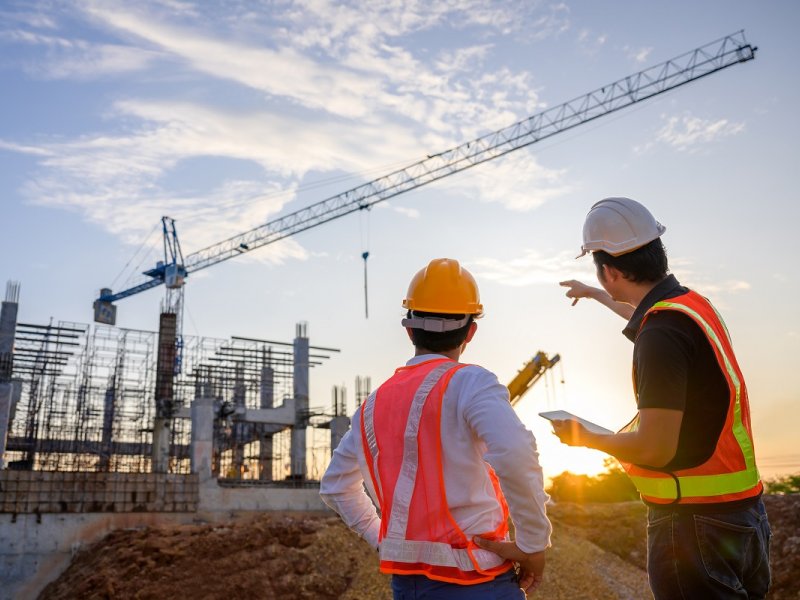


Construction projects involve complex processes and require careful management. Project management demands meticulous planning, organization, and execution at every stage, from initiation to delivery. Effective management ensures the successful completion of the construction. So, how to manage a construction project from start to finish?
Project planning is one of the fundamental pillars of a successful construction project. An effective planning process is crucial for achieving time, cost, and quality objectives. Some key aspects to consider during this stage include:
Carefully executing these steps establishes a strong foundation for the construction management process and minimizes potential challenges in later phases.
Construction projects are strictly regulated by local and national legal frameworks. Adhering to these regulations at every stage of the project is essential to avoid legal issues and ensure timely completion.
Before beginning project planning, it is necessary to gather information regarding the required construction permits. The permitting process typically includes preparing applications, submitting property documents, and organizing environmental impact reports.
Additionally, some projects may require special permits. For example, construction in protected areas or the restoration of historical structures may necessitate additional approvals. Consulting an expert lawyer or advisor can facilitate compliance with legal requirements.
Developing a detailed project schedule is one of the most critical stages of construction project management. Properly defining the project timeline ensures that all processes run smoothly. The first step is to identify all project stages and estimate the required duration for each.
The foundation of a successful construction project lies in assembling the right team. A professional team ensures that each phase is executed efficiently, allowing the project to be completed within the designated timeline and budget.
Procurement and material management play a significant role in the success of a construction project. Ensuring that the right materials are available at the right time, in the right place, and at the right cost is crucial for timely project completion.
The first step is selecting and organizing the construction site. Establishing necessary access routes to facilitate transportation and ensure workplace safety is a vital part of this process.
Next, the required infrastructure must be installed. Providing essential utilities such as water, electricity, and communication lines is crucial for uninterrupted construction progress. Additionally, constructing site offices and rest areas supports the workforce.
The secure storage of machinery and equipment is also part of the preparation phase. Ensuring timely and organized equipment delivery simplifies construction management. Regular maintenance of equipment enhances workforce efficiency and prevents potential accidents.
To ensure smooth project progress, each step must be carefully monitored and recorded. Defining clear task assignments for team members ensures timely and proper execution of tasks.
Identifying potential risks in advance and developing strategies to minimize their impact is essential for the success of the project.
Adhering to workplace safety standards and conducting regular inspections during construction helps prevent potential accidents. All site personnel should receive safety training, and the use of protective equipment should be encouraged. Additionally, establishing emergency response plans and sharing them with the entire team is crucial for effective risk management.
This phase involves completing all work and delivering the project according to the agreed specifications. Upon project completion, final inspections should be conducted to ensure compliance with predefined standards and client expectations.
Moreover, preparing all necessary documentation and reports during the project closure phase is essential. These records serve as references for future issues that may arise.
The final meeting with the client holds great importance. During this meeting, client satisfaction is assessed, and discussions are held to determine whether all expectations have been met. A project closure report summarizing all processes should be prepared, which can also serve as a reference for future projects. These steps are crucial for the successful completion and closure of a construction project.
Source: https://www.procore.com/library/construction-project-management-phases